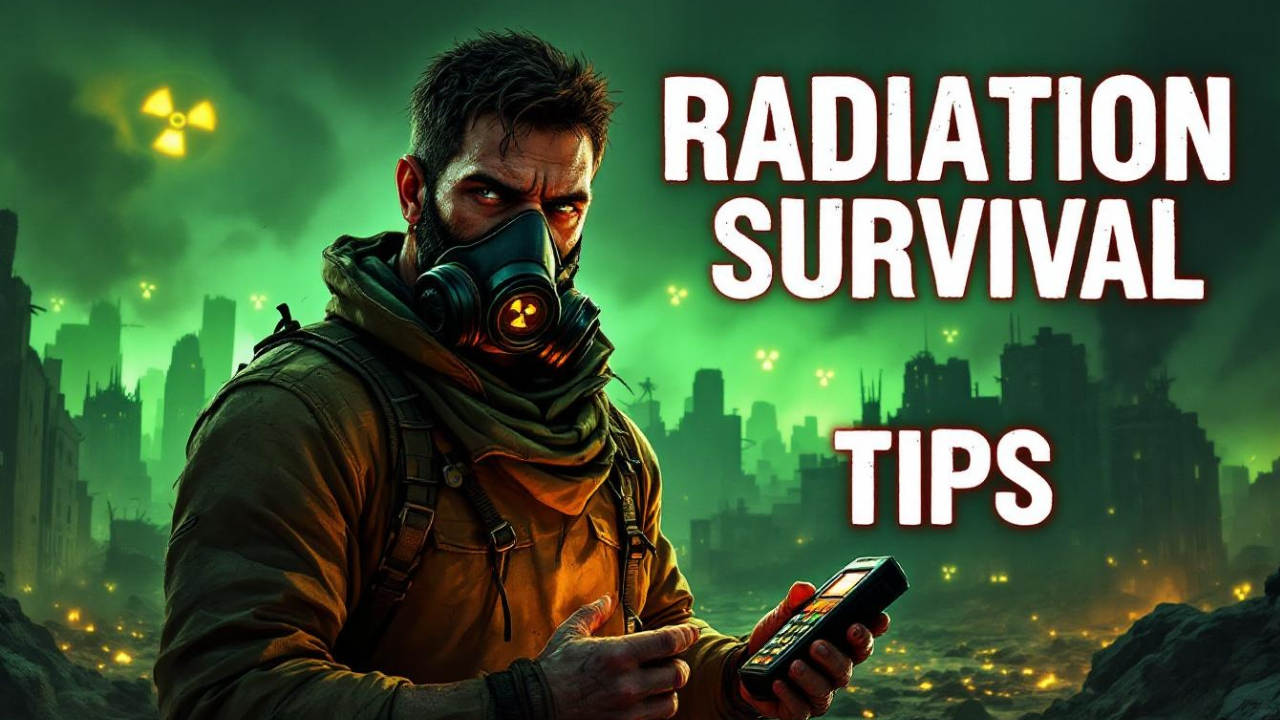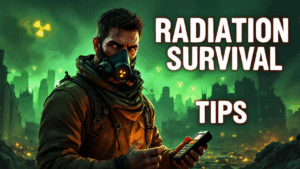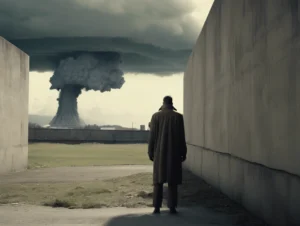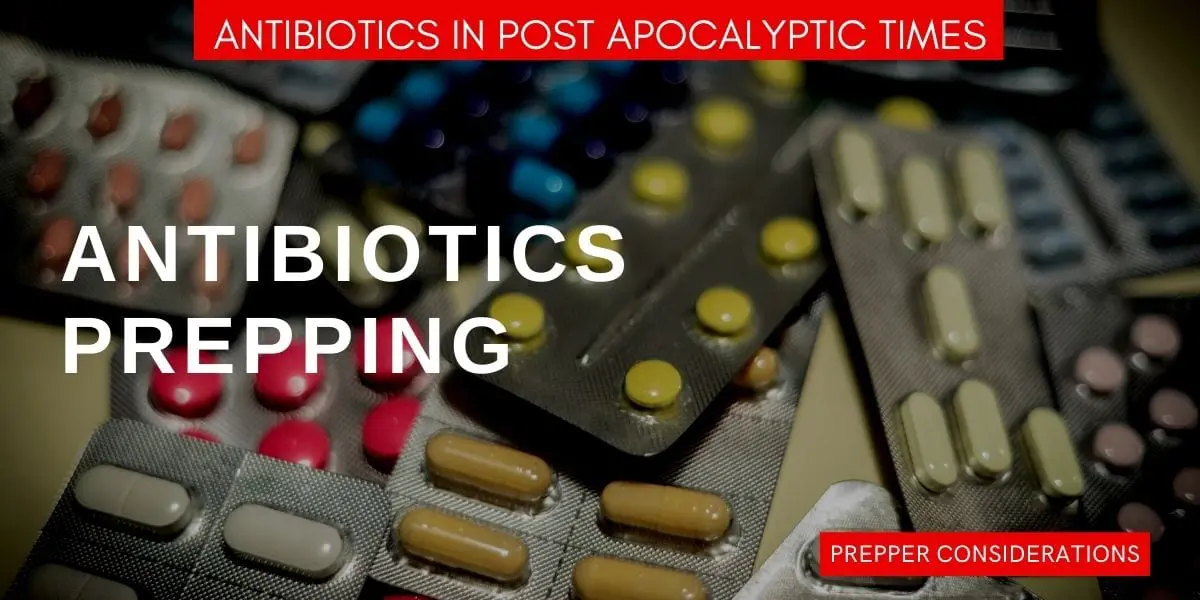When it comes to emergencies, knowledge is your best defense. Today, we’re diving into one of the most critical, albeit daunting, topics: what happens to your body after significant radiation exposure. Whether it’s the aftermath of a nuclear event or another unexpected crisis, understanding your body’s signals can be the difference between life and death. The goal is not to instill fear, but to empower you with actionable knowledge to protect yourself and your loved ones. Let’s methodically explore the effects of radiation on the human body and how you can respond effectively.
The First Signs of Acute Radiation Syndrome (ARS)
One of the earliest indicators of significant radiation exposure is nausea and vomiting. These symptoms can appear within minutes to hours, depending on the dose of radiation received. This stage, known as the “prodromal stage,” is a red flag signaling acute medical distress.
- What causes it? Radiation damages rapidly dividing cells in the gastrointestinal tract, triggering intense nausea and vomiting.
- What to do: Seek medical attention as soon as possible. If medical care is unavailable, focus on hydration and rest in a safe, sheltered location.
Closely following—or occurring simultaneously with—nausea and vomiting is diarrhea. Damage to the intestinal lining leads to water loss and, in severe cases, bloody diarrhea (dysentery), signaling significant internal injuries.
- Critical step: Aggressive rehydration is essential. Use oral rehydration solutions or a homemade mix of water, salt, and sugar to replace lost fluids and electrolytes.
Skin Burns and Fatigue: Listening to Your Body
Radiation can cause visible damage to the skin, known as cutaneous radiation injury. Initially, redness similar to a mild sunburn may appear, but higher doses result in blisters and deeper tissue damage.
- Immediate care: Gently clean the affected area with lukewarm water and avoid popping blisters. Professional medical help is highly recommended to prevent infection and scarring.
Profound fatigue is another hallmark of radiation exposure. This overwhelming exhaustion happens as your body attempts to repair widespread cellular damage.
- How to cope: Rest as much as possible, monitor other symptoms like fever, and stay hydrated. Avoid unnecessary physical exertion to conserve energy.
Delayed Symptoms: Hair Loss, Fever, and Immune Suppression
Hair loss, or alopecia, typically begins 2-3 weeks after exposure. Radiation disrupts the rapidly dividing cells in hair follicles, leading to loss that may include the scalp, eyebrows, and eyelashes.
- The takeaway: While hair loss itself isn’t painful, it often indicates significant radiation exposure. Consult medical professionals for long-term monitoring and care.
Fever is another critical symptom, signaling the body’s inflammatory response. In the case of radiation exposure, it could indicate cell damage or a weakened immune system. Monitor your temperature closely and seek medical attention for fevers above 101°F (38.3°C).
Perhaps one of the most insidious effects of radiation is its impact on the immune system. High doses of radiation destroy bone marrow, reducing your body’s ability to produce white blood cells. This makes you highly vulnerable to infections.
- Precautionary measures: Maintain strict hygiene, avoid contact with sick individuals, and monitor for early signs of infection like fever or sore throat. Long-term care may require regular blood tests or even bone marrow transplants in severe cases.
Navigating Psychological and Neurological Challenges
The mental toll of radiation exposure is profound. From anxiety and depression to PTSD, the psychological impact can be as debilitating as physical symptoms.
- What helps: Seek professional counseling if available. If not, lean on your prepper group or community for support. Talking about your experiences can make a significant difference.
Neurological symptoms, such as dizziness and confusion, may also arise, often indicating severe damage to the brain or cardiovascular system. These are medical emergencies and require immediate intervention.
Critical Steps for Immediate Action
In the event of radiation exposure, every second counts. Here’s a quick checklist for immediate action:
- Evacuate: Leave the area quickly and safely.
- Decontaminate: Remove outer clothing and wash thoroughly with soap and water.
- Seek shelter: Find a secure location, preferably in a basement or the center of a building.
- Stay informed: Tune into official news sources for instructions.
- Get medical attention: Report all symptoms, no matter how minor they seem.
Empower Yourself with Knowledge
The insights we’ve covered today are not just for you—they’re for your family and community. By understanding the effects of radiation exposure and knowing how to respond, you can take control in an otherwise uncontrollable situation. Remember, preparation isn’t about fear; it’s about empowerment.
For more trusted resources, visit organizations like the Centers for Disease Control and Prevention (CDC) or the World Health Organization (WHO). Equip yourself with knowledge today so you can face tomorrow’s challenges with confidence.
Have questions or tips to share? Leave a comment below to join the conversation. And don’t forget to subscribe to Modern Warrior Project for more life-saving survival strategies. Stay safe, stay prepared, and remember: knowledge is power.































